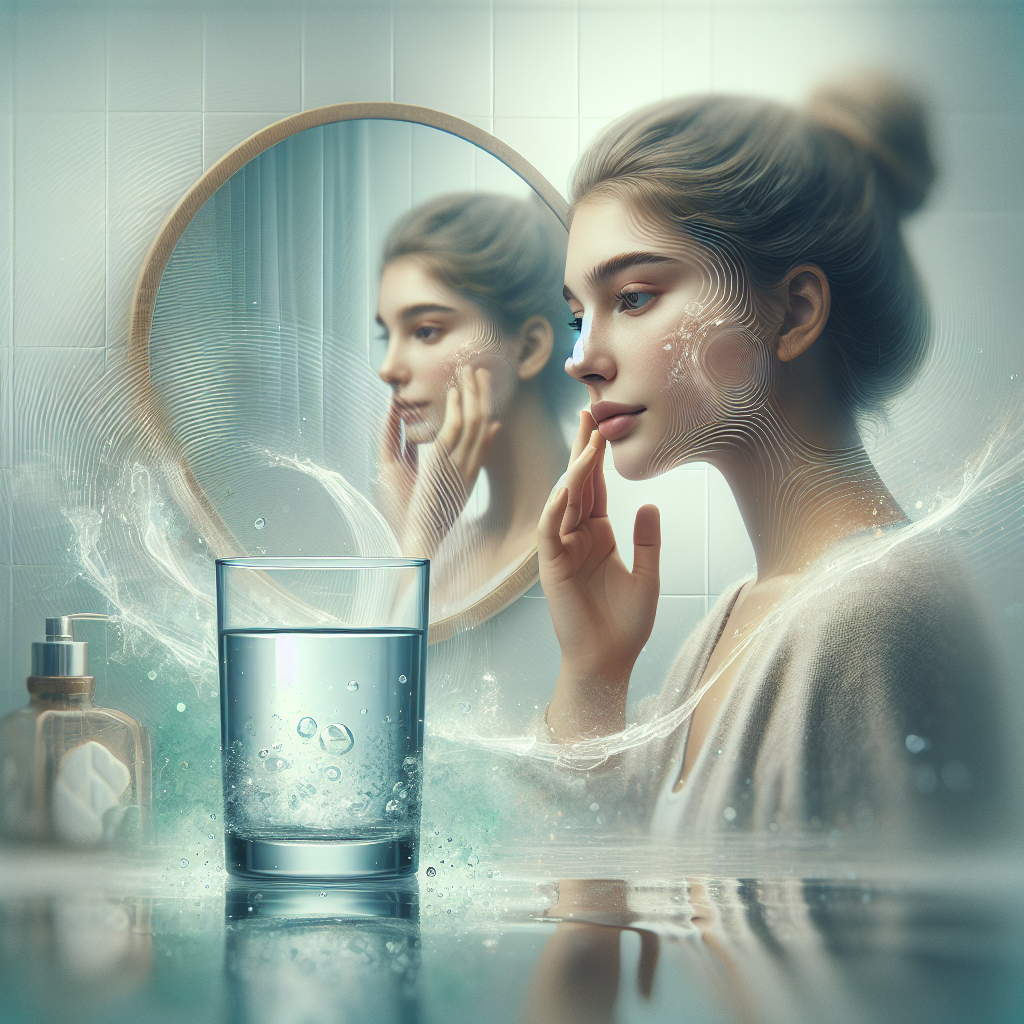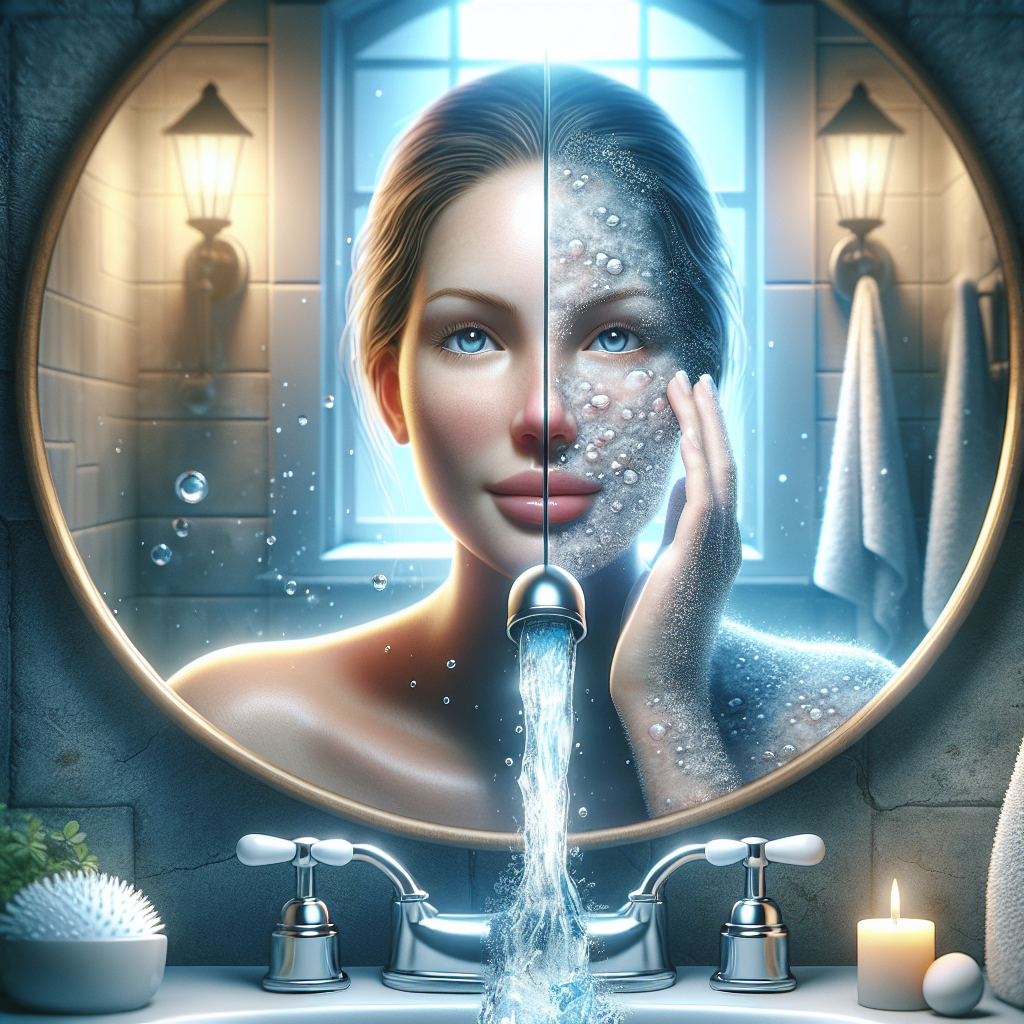How to Cure Acne: The Impact of Water Quality
Acne is a common skin condition that affects millions worldwide, often leading to frustration and a search for effective solutions. While various factors contribute to acne, one often overlooked element is the quality of water we use daily. In this post, we’ll dive into how water quality can impact acne and explore actionable steps to improve your skin by paying attention to the water you use. Let’s dive in! 💧
Table of Contents
1. Introduction
2. Understanding Acne and Its Causes
3. The Role of Water Quality in Acne
4. Hard Water vs. Soft Water: What’s the Difference?
5. How to Improve Water Quality for Better Skin
6. FAQ
7. Conclusion

Understanding Acne and Its Causes
Acne is primarily caused by the overproduction of oil (sebum), blocked hair follicles, bacteria, and inflammation. Hormonal changes, diet, stress, and genetics can exacerbate the condition. However, an often ignored factor is the water we use to cleanse and hydrate our skin.
The Role of Water Quality in Acne
Water quality can significantly affect your skin’s health. The minerals and impurities present in the water you use for washing your face can influence acne formation. Let’s explore this further.
Hard Water vs. Soft Water: What’s the Difference?
Hard Water: This type of water contains high levels of minerals like calcium and magnesium. These minerals can leave a residue on your skin, potentially clogging pores and exacerbating acne. Moreover, hard water can make it difficult for soap to lather properly, leading to inadequate cleansing.

Soft Water: Soft water, on the other hand, has fewer minerals and is gentler on the skin. It allows soap to rinse off more easily, reducing the likelihood of pore blockage. Soft water can help maintain the skin’s natural moisture barrier, which is crucial for preventing acne.
How to Improve Water Quality for Better Skin
Improving the quality of water you use on your skin can be a game-changer in your battle against acne. Here are some tips to consider:
1. Install a Water Softener
A water softener can significantly enhance water quality by removing excess minerals. This can prevent residue build-up on your skin, resulting in fewer breakouts and improved skin texture.
2. Use Filtered Water for Face Washing
If installing a water softener isn’t feasible, using filtered water for washing your face can also make a difference. Consider using a water filter jug or a shower filter to reduce impurities.
3. Opt for Gentle Cleansers
Regardless of water quality, using gentle, non-comedogenic cleansers can help minimize irritation and breakouts. Look for products specifically designed for acne-prone skin.
4. Maintain a Consistent Skincare Routine
Consistency is key to managing acne. Stick to a regular skincare routine that includes cleansing, moisturizing, and sun protection. Incorporate products with ingredients like salicylic acid or benzoyl peroxide for added acne-fighting benefits.
FAQ
Q: Can hard water cause skin irritation?
A: Yes, hard water can lead to skin irritation by leaving mineral deposits on the skin, which can clog pores and worsen acne.
Q: Is it necessary to use filtered water for washing my face?
A: While not necessary, using filtered water can reduce impurities and potentially improve skin health, especially for those with sensitive or acne-prone skin.
Q: How often should I wash my face if I have acne?
A: It’s generally recommended to wash your face twice daily—once in the morning and once before bed. Over-washing can strip natural oils and worsen acne.
Conclusion
Water quality is an important yet often overlooked factor in managing acne. By understanding the impact of hard water and taking steps to improve the water you use, you can enhance your skincare routine and potentially see improvements in your skin’s health. Remember, achieving clear skin is a journey, and every little change can make a difference. Here’s to clearer, healthier skin! 🌟
